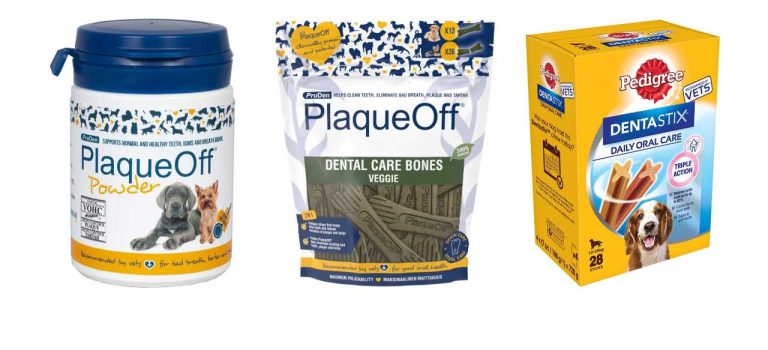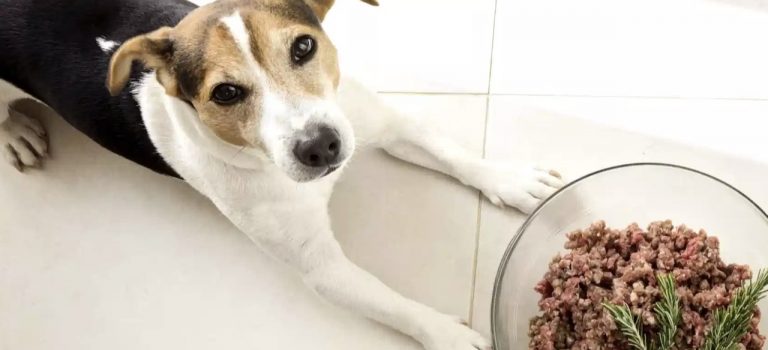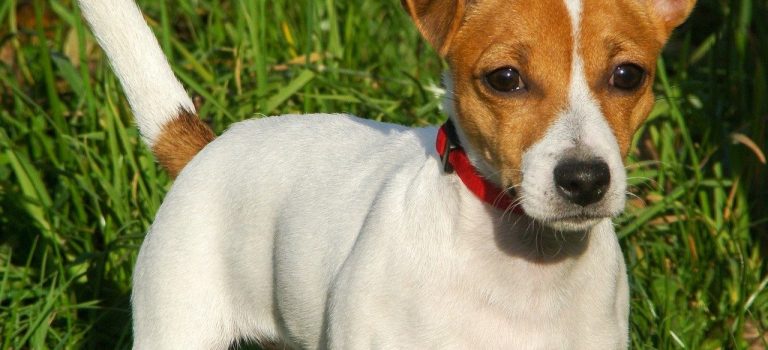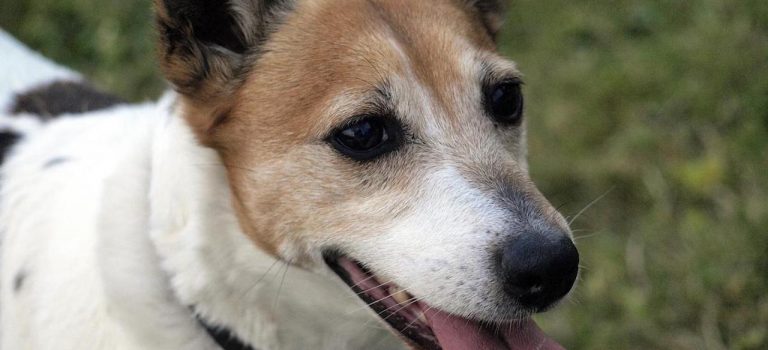jackrussellworld.co.uk is a participant in the Amazon Services LLC Associates Program and other affiliate advertising programs designed to provide a means for us to earn fees by linking to Amazon.com and affiliated sites. Affiliate links may be used on this page and in jackrussellworld.co.uk articles, but they do not impact on the price that you pay.
Dental hygiene is an important part of caring for your dog. Today we are going to have a look at Jack Russell teeth and dental care for Jack Russells.
As a breed, Jack Russell’s are happiest when spending time with their human family and this frequently extends to sharing our food. Most people, when they stop for tea and biscuits or coffee and cake, will share a morsel of the sweet, tasty foodstuff with their Jack Russell. It’s almost law to do so!
That means that as well as the usual tooth-related healthcare for dogs, your Jack Russell is suffering from the same problems that sugar causes to our teeth and gums.
Common tooth and mouth problems in dogs:
- Plaque
- Tartar
- Periodontitis
- Gingivitis
- Halitosis
- Pyorrhea
A build-up of plaque, if left untreated, soon turns into tartar. Tartar is the brown gritty, more solid feeling substance around their teeth. Tartar causes inflammation and easily leads to sore gums, periodontitis, gingivitis and even pyorrhea. This can all happen really quickly. Periodontitis and gingivitis are inflammation of the gums around teeth. Halitosis is bad breath and pyorrhea is when the actual tooth or jawbones become inflamed.
It is important to look after your terrier’s mouth health, oral infections not only cause pain and the associated oral problems mentioned but can also lead to tooth loss, expensive veterinary bills for treatment and extraction. Inflammation in the mouth can impact general health. Untreated teeth problems can even lead to organ failure. Some breeds are more susceptible to tooth and mouth problems and fortunately, Jack Russell’s are not one of those breeds. However, all those tasty, sugar-laden treats mean that your companion is likely to need additional tooth care.
Chew Toys
Giving your Jack Russell terrier a variety of textured chew toys is one of the ways that you can help them to clean their teeth and exercise their jaws. But be careful not to give them really hard chews that can wear down their teeth. Bones may seem a good option, but although it’s natural for dogs to chew bones, bones can also wear their teeth down.
Plaque Off
Plaque Off is entirely natural. It’s made from a type of seaweed that benefits teeth and gum care, Plaque Off works as a treatment and preventative for tartar. You simply add a small amount to your dog’s food, depending on their weight, once a day. A Jack Russell would have just half to one tiny scoop a day and you’d give Parson Russell Terriers one tiny scoop. Plaque Off works by altering the saliva and softening existing tartar. Plaque Off is backed by successful clinical trials. My vet recommends this and a small tub lasts for ages because you only give them a small amount.
- VOHC ACCEPTED & VET RECOMMENDED ProDen PlaqueOff is a clinically proven seaweed plaque remover for dogs and cats, proudly accepted by the VOHC (Veterinary Oral Health Council) for its safety and effectiveness. Trusted by veterinarians for over 24 years, it naturally supports oral hygiene, fresh breath, and healthy gums.
- VISIBLE RESULTS IN 3–8 WEEKS Clinically proven to reduce plaque, tartar, and bad breath in just 3–8 weeks. Works systemically through your pet’s saliva to clean hard-to-reach areas that brushing can’t. Accepted by the VOHC for helping control plaque and tartar. Provides 24/7 dental protection and keeps your pet’s mouth fresh and healthy.
- 100% NATURAL & ORGANIC SEAWEED Made from Ascophyllum nodosum, a unique Scandinavian seaweed sustainably harvested from pure ocean waters. Our GMP-certified, clinically tested powder is organic, hypoallergenic, and free from additives, gluten, dairy, sugar, and preservatives — ideal for sensitive pets
Dental Chews
The same company also sells ProDen Plaque Off Dental Bones that are free from additives, artificial preservatives, gluten, grain, and sugar, just like the food supplement. Giving these chews as a daily treat helps your dog’s oral hygiene and makes teeth cleaning easier.
- VETERINARY ORAL HEALTH COUNCIL APPROVED: Our plaque remover after clinical trials, was proudly accepted by the VOHC PlaqueOff dental Bones ensures top-notch plaque and tartar control
- COMPLETE ORAL HEALTH: Our Dental Bone is specially formulated with active ingredients to target plaque bacteria, helps to remove bad breath , existing plaque and prevents the tartar formation
- NATURAL INGREDIENTS: Our Plaque off Bones made with all-natural ingredients, this tooth cleaner is safe and easy. Simply give one bone a day to your pet once a day for a stress-free dental routine
Pedigree Dentastix are another option of dental chews, these don’t have the additional benefit of the Plaque Off ingredients, but they are especially ridged to maximise teeth cleaning.
- Make sure your canines teeth and gums are clean and healthy with Pedigree Dentastix, the daily dental treat which helps build strong teeth and gums
- Designed for your large four-legged friend, packed with dog-friendly ingredients and a great taste that helps with bad breath. Daily dental chews are packed with vitamins and nutrients
- Scientifically proven to help reduce plaque and tartar build-up by up to 80%. The 'X' shape design helps breaks down plaque and tartar
Physically Cleaning Your Dogs Teeth
Using a special dog toothbrush and specialist dog toothpaste to daily clean your Jack Russell’s teeth is a good routine to get into. Doing so helps maintain good dental hygiene and is especially important if they share your sugary snacks. Please, don’t be tempted to use human toothpaste – it’s toxic for dogs.
Get your terrier used to having their teeth cleaned by starting with just a few brush movements in their mouth at a time. Make it fun by using a toothpaste flavour they like and giving them a suitable sugar free treat after you have cleaned their teeth. Gradually build up to brushing the whole mouth of teeth.
The best way to get a dog used to having their teeth cleaned is when they are a puppy, that way, they accept it as part of their hanging out with you routine. Even though puppies shouldn’t have any tartar, getting into the habit is beneficial for both of you because it means you are regularly inspecting their teeth and mouth and they are used to teeth cleaning for later on when it is needed.
If your terrier already has signs of inflamed gums, I urge you to get their mouth checked by a vet.
If you enjoyed this article on Jack Russell Teeth and Dental Care you might also like to read about Jack Russell Biting.







